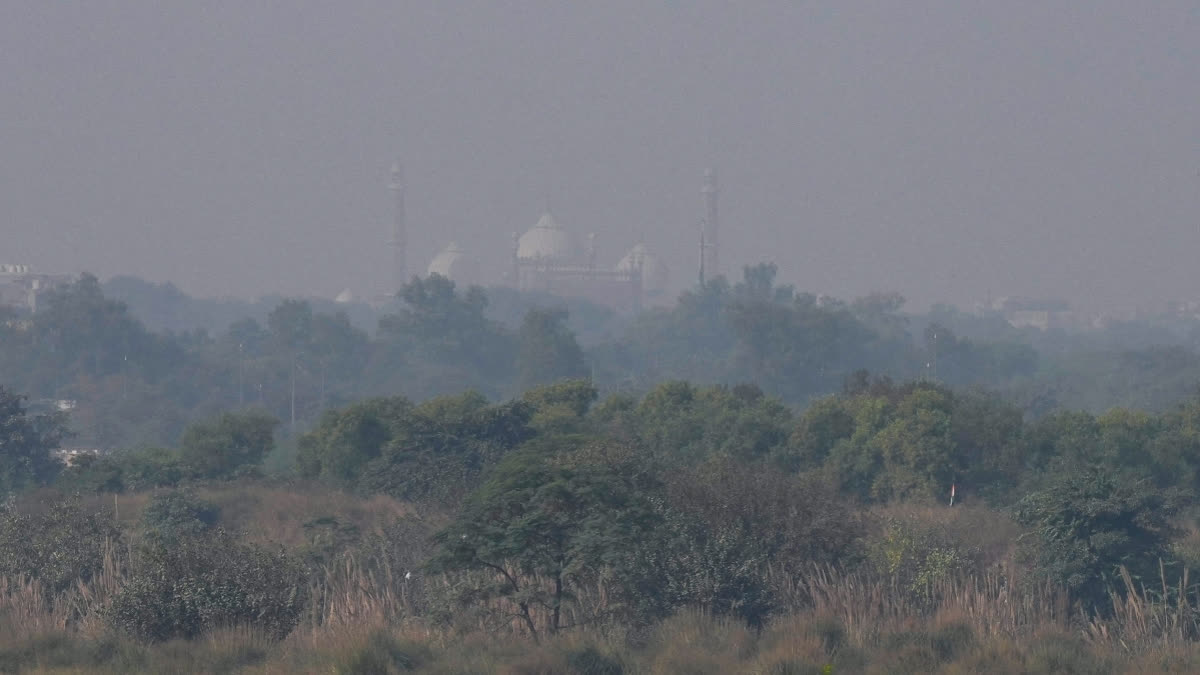New Delhi:After enduring nearly two months of hazardous air, Delhi residents finally breathed a sigh of relief as the city recorded its first 'moderate' Air Quality Index (AQI) reading in 50 days. On Wednesday, the AQI improved significantly to 163, down from 268 the previous day, marking a welcome reprieve from persistent pollution.
Favourable Weather Conditions Play a Role:
Prof SN Mishra, Former Director of Climate Services in the Indian Air Force, attributed the improved air quality to favourable atmospheric conditions.
“The strong north-westerly winds sweeping across northwest India, including the Indo-Gangetic plains, have dispersed pollutants, providing much-needed respite to Delhi residents,” he told ETV Bharat. These cold and dry winds have been a key factor in reducing pollution levels over the past four days.
Mishra noted, however, that this improvement might be temporary. “Similar conditions are expected to persist for another 3–4 days before weakening due to an approaching Western Disturbance. While air quality may slightly deteriorate afterwards, the respite has been a relief for the city’s residents,” he added.
November’s Pollution Crisis:
Throughout November, Delhi’s air quality swung between “very poor” and “severe” categories, exacerbated by local emissions, stubble burning in neighbouring states, and unfavourable weather conditions like weak winds and temperature inversions. Though the stubble-burning season is nearly over, local sources of pollution, such as vehicular emissions and industrial activities, remain significant contributors to the city’s poor air quality.
Forecast and Monitoring Updates:
The India Meteorological Department (IMD) forecasts strong winds to continue until December 7. However, with the arrival of a Western Disturbance, moderate fog is expected to set in starting December 8. Despite these changes, the air quality is likely to remain in the moderate category on Thursday before deteriorating to the 'poor' category over the weekend.
Citywide Air Quality Breakdown:
Out of Delhi’s 38 air quality monitoring stations, only one—Sri Aurobindo Marg—recorded 'very poor' air quality on Wednesday. Eight stations reported 'poor' air quality, while the rest showed 'moderate' levels, according to the Central Pollution Control Board (CPCB).
The CPCB classifies AQI readings as follows:
• 0–50: Good
